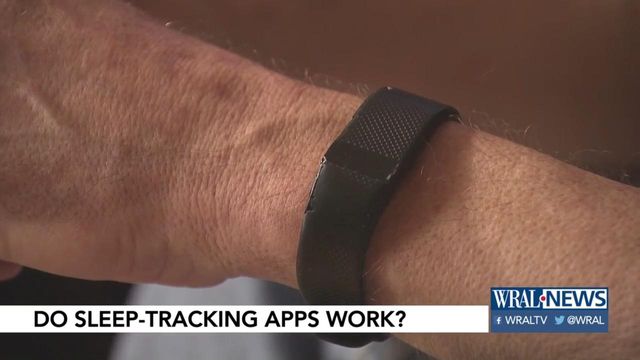Why the best sleep tracker might be your own body
The way you feel when you wake up is a good way to tell how you slept last night, but now, a growing number of people are also wearing devices to keep track of their sleep.
Posted — UpdatedA lot of smartwatches and fitness trackers can now follow the ups and downs of a wearer's sleep routine. Some sleep experts say that data can be used to track their sleep habits.
Michael Dawson wears a Fitbit device to bed to track how well he's sleeping. On a recent night, he stayed up to watch the Olympics and only got six hours and nine minutes of sleep, the Fitbit told him.
"You realize, like eating late has an impact, alcohol has an impact," Dawson said.
Dr. Allison Siebern, a psychologist at the Sleep Health and Wellness Center in Raleigh, said people who track their sleep, like Dawson, can try to improve the quality of their sleep by targeting bad habits.
"I think it's important for people to be aware of their sleep habits, what works for them, what doesn't," Siebern said.
Siebern specializes in sleep research and is a consultant for Fitbit. Siebern says if you're feeling tired, a tracker is a good way to learn more about exactly how much you're sleeping.
"That's where this information can be helpful — they can track it and look at this more objective data.," Siebern said.
- {{a href="story-1'}}Bed in a box? Some boxed pads stack up against traditional mattresses{{/a}}
But not everyone sees the value in these devices. Dr. Mary Ellen Wells runs the sleep science program at the University of North Carolina at Chapel Hill School of Medicine where researchers are studying consumer sleep-tracking devices and apps.
Wells and other researchers are finding the devices fall short.
"They detect movement, but there's no way they can tell whether you're in light sleep or whether you're in deep sleep," Well said.
Instead of a device, Wells said the best sleep-tracking device is you.
"If you wake up and you don't feel rested, something is probably wrong with the quality and quantity of your sleep, and that's when you should see a doctor," Wells said.
Dawson said he usually gets eight hours a night and believes his Fitbit helps keep him on track.
"It just makes you more aware," Dawson said. "It kind of reminds you, 'Hey, I need to go to bed."
The eight hours of sleep many people always hear is just an average across people, and doctors say sleep needs can vary from person to person.
Related Topics
• Credits
Copyright 2024 by Capitol Broadcasting Company. All rights reserved. This material may not be published, broadcast, rewritten or redistributed.






